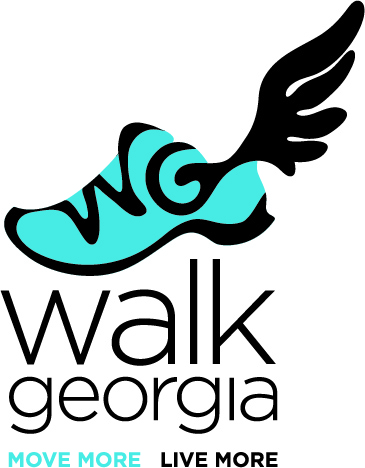For almost a decade, Georgians have been getting active with University of Georgia Cooperative Extension’s Walk Georgia. The statewide health and wellness program has impacted more than 100,000 people, and it has spurred whole schools, workplaces and communities to get out and explore their state.
“When we started planning this program, the obesity epidemic was just starting to make headlines,” said Maria Bowie, director of Walk Georgia. “We wanted to build a program that would get Georgians moving and encourage them to explore the state, but we never knew how far that would take us.”
Launched in 2008, Walk Georgia is one of the nation’s first online Cooperative Extension programs to address the obesity epidemic. By offering free, online fitness tracking and social networking capabilities, Walk Georgia offers an easy-to-use motivational system to get Georgians on the path to fitness.
While the number of Georgians who are sedentary has increased over the past decade, the percentage of inactive Georgians has fallen to 23.6 percent in the last year — a 13 percent drop, according to the 2015 America’s Health Rankings Annual Report published by the United Health Foundation.
With the support of a grant from The Coca-Cola Foundation in 2013, Walk Georgia’s popularity surged over the past three years. Almost 20,000 Georgians use the program’s fitness tracking website. The program’s blog, with fitness and nutrition tips, has 16,000 followers. More than 86,000 participants have taken part in community fun runs, walks and fitness events over the last three years. Walk Georgia has become part of communities across the state.
The program has been integrated into workplace wellness programs at the Georgia Department of Public Health and the city of Moultrie, and into programs that teach students the importance of physical activity, like those in Bibb County schools. In addition to structured programs, thousands of participants have built their own networks of fitness friends using Walk Georgia’s online platform. It is a rallying point in each Georgia county for people who want to become healthier.
Walk Georgia brings whole communities together to support one another as they get fit, and that is the secret to Walk Georgia’s success, Bowie said. Walk Georgia brings a sense of fun and competition to the challenge of becoming and staying fit into today’s hectic world.
In addition to fostering personal networks, one of Walk Georgia’s most important successes has been building a network of partner agencies that are all working to make Georgia healthier, Bowie said. Partnerships with local school systems, the Association County Commissioners of Georgia, Georgia Municipal Association, Georgia State Parks, Georgia electric membership corporations (EMCs) and countless county and city governments give Walk Georgia a statewide reach.
“From downtown Atlanta to downtown Moultrie, we’ve had tremendous support for our efforts to make healthy living a daily priority for employees, families, businesses and community organizations,” Bowie said. “One of our goals for the Walk Georgia program is to make it applicable and accessible to everyone in Georgia, and that is only possible by working with our local UGA Extension offices in each county.”
Local UGA Extension agents deliver health and wellness programming that meets clients’ specific needs. Agents have special insights into the needs of their counties that can be replicated in multiple counties, said Deborah Murray, associate dean for Extension and outreach in the UGA College of Family and Consumer Sciences.
“Obesity in Georgia is a statewide problem, but its impacts are very localized,” Murray said. “Building a healthier Georgia is not an abstract goal. Supporting health and wellness is having immediate, positive impacts on families, schools, counties and cities, and those personal impacts are what Walk Georgia is all about.”
For more information about joining Walk Georgia or to find more information, visit www.walkgeorgia.org or contact your local UGA Extension office at 1-800-ASK-UGA1.





